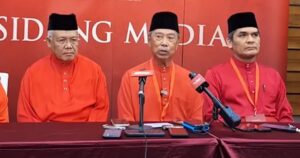
The proposed amendments to the Malaysian Anti-Corruption Commission (MACC) Act 2009 will be presented soon to the special Cabinet committee on national governance chaired by Prime Minister Anwar Ibrahim.
MACC chief commissioner Azam Baki said the proposed bill is expected to be tabled in Parliament by the middle of next year.
The amendments will enable the Deferred Prosecution Agreement (DPA) to be implemented, he said.
“The DPA is a law that has been adopted by many developed countries, including the United States and the United Kingdom, to resolve grand corruption cases involving large business entities or institutions.
“Under the DPA, the entity or business institution involved must fulfil several conditions, including returning misappropriated funds or assets, paying penalties or fines, and complying with the requirements set by the enforcement authorities and the Attorney-General’s Chambers,” Bernama quoted him as saying during an executive talk at the MACC headquarters in Putrajaya.
Azam explained that while the DPA could reduce both costs and lengthy court proceedings, it did not mean the accused would escape prosecution.
“Prosecution will still proceed, but it will be postponed. The DPA will only apply to cases involving grand corruption, not those involving smaller amounts.
“The decision to implement the DPA is not unilateral; it requires mutual agreement (between the prosecutor and the accused). The prosecutor must assess the case and agree on the justification for granting the DPA,” he said.
Azam said that seized assets, fines, and penalties imposed on entities receiving the DPA would go into the national coffers.






